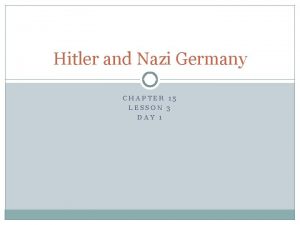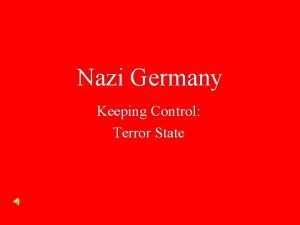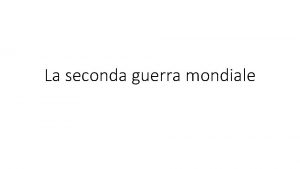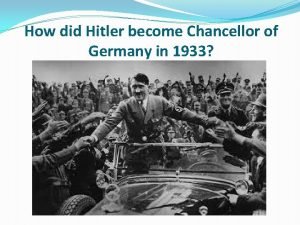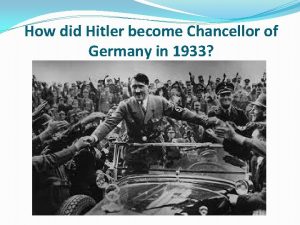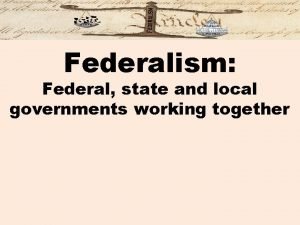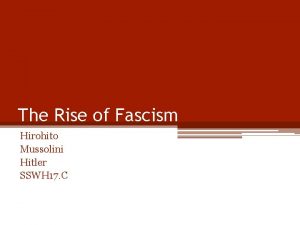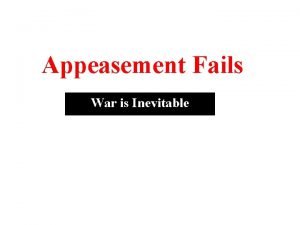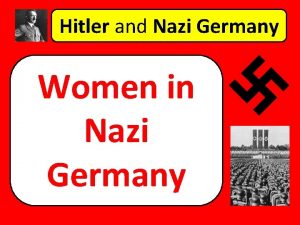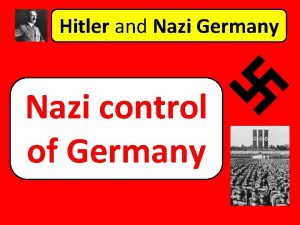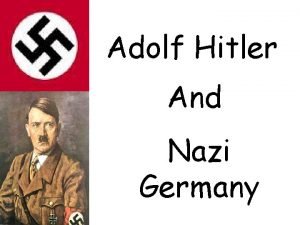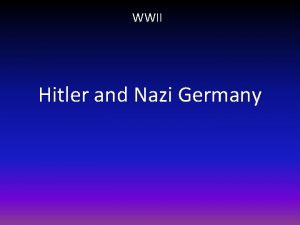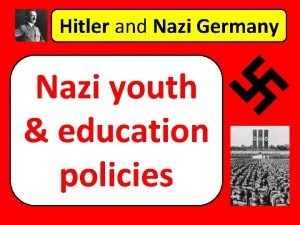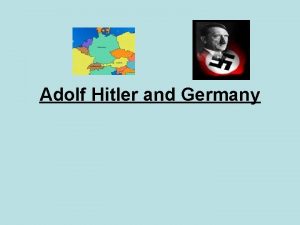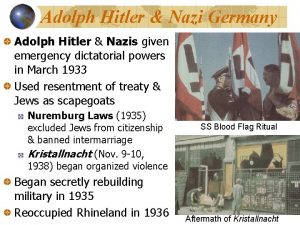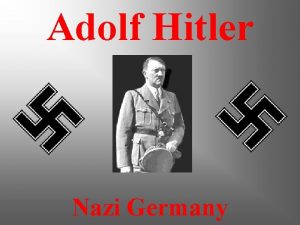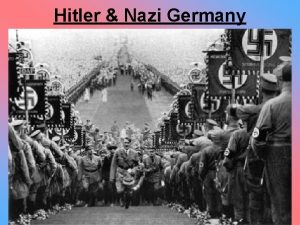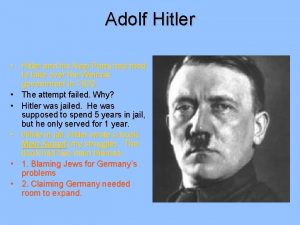Hitler and Nazi Germany Government in Nazi Germany












- Slides: 12

Hitler and Nazi Germany Government in Nazi Germany

The Nazi Government In today’s class, I am learning to: • Describe the organisation of the Nazi government

The Nazi Government Adolf Hitler took power in Germany in January 1933, and he maintained control of the country until his death in April 1945.

The Nazi Government When Hitler first became Chancellor of Germany he was the head of a coalition government, meaning he had to rely on other people. Hitler persuaded President Hindenburg to call early elections in the hope that the Nazis would win a majority.

The Nazi Government The Nazis increased their votes in the March 1933 elections (to 44%) but they still fell short of a majority. Hitler then persuaded – and intimidated – members of the Reichstag to support the introduction of the Enabling Act, giving him the power to pass laws without approval.

The Nazi Government Hitler used the Enabling Act to pass laws, including banning other political parties and also trade unions. He also made use of the Reichstag Fire Decree to arrest political opponents, and ban newspapers that criticised him.

The Nazi Government After the death of President Hindenburg in August 1934, Hitler merged the offices of Chancellor and President. As Fuhrer of Germany, Hitler was in total command, even taking a personal oath of loyalty from the German Army.

The Nazi Government Hitler could not run all aspects of Germany, so he appointed different men to carry out various jobs. Heinrich Himmler was the head of the SS, and he was also in charge of all German police forces. Himmler oversaw the running of concentration camps.

The Nazi Government Joseph Goebbels became Minister of Propaganda, making him in charge of information in Germany. Goebbels used various methods, including posters, radio broadcasts, cinema adverts and mass rallies (such as at Nuremburg).

The Nazi Government Hermann Goering was put in charge of the Office of the Four Year Plan. This department – set up in 1936 – had power over all others and aimed to get Germany ready for war within four years. Goering was also in charge of Germany’s air force.

The Nazi Government During his rule, Hitler made use of referenda (elections about a single issue) to suggest public support for his policies. Hitler held special elections on issues such as the merging the jobs of Chancellor and President, and also joining Germany with Austria.

The Nazi Government Hitler wanted full control of Germany. He abolished all Lander (state) governments in Germany. Instead of elected governors, he appointed Gauleiters to run each different part of Germany, following his rules and targets.
 Lesson 3 hitler and nazi germany
Lesson 3 hitler and nazi germany Hitler terror quotes
Hitler terror quotes Nazi germany military
Nazi germany military What is this image
What is this image Map of nazi aggression
Map of nazi aggression Whats the truman doctrine
Whats the truman doctrine How did hitler become chancellor of germany
How did hitler become chancellor of germany How did hitler become chancellor of germany
How did hitler become chancellor of germany State and federal constitutions
State and federal constitutions Hirohito hitler and mussolini
Hirohito hitler and mussolini Did hitler invent scratch and sniff stickers
Did hitler invent scratch and sniff stickers Hitler and stalin
Hitler and stalin The rise and fall of adolf hitler
The rise and fall of adolf hitler
